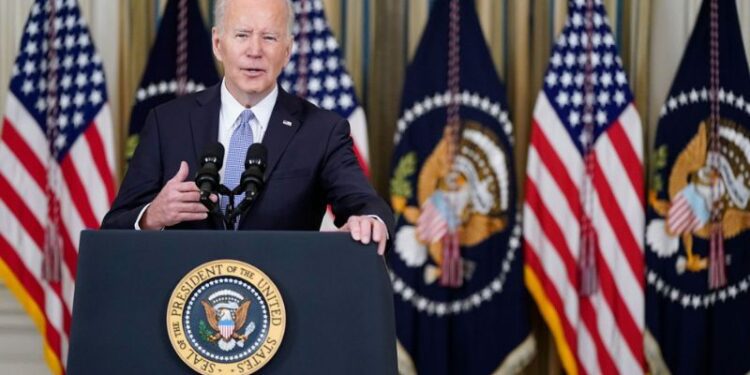President Joe Biden, alongside a bipartisan group of lawmakers, including the top U.S. Senate Republican, has called upon the Republican-controlled House of Representatives to consider a crucial $95.34 billion military aid package for Ukraine and other allies.
The Senate recently passed the measure with a 70-29 vote, following a contentious session where a group of Republican hardliners attempted to block it. However, uncertainties loom over whether House Speaker Mike Johnson will prioritize a vote in the chamber, which the Republican Party narrowly controls with a margin of 219-212.
The legislation, which requires approval from both houses of Congress before Biden can sign it into law, holds significant importance for Ukraine as it continues to defend itself against Russian aggression. The aid package also includes security funding for Israel and Taiwan, as well as humanitarian aid for Palestinians.
President Biden has been a vocal advocate for the bill, emphasizing its importance in countering Russian President Vladimir Putin’s aggression. He urged House Republicans to allow a vote on the bill, framing support for it as a stance against Putin’s actions.
Senate Republican Mitch McConnell, one of the 22 Republicans who supported the bill, expressed hope that the House would consider it, emphasizing the importance of aiding Ukraine.
However, House Speaker Johnson raised concerns about the bill, citing its lack of conservative provisions related to immigration. He indicated reluctance to schedule a vote in the near future, suggesting dissatisfaction with the Senate’s approach.
The potential deadlock in the House has prompted discussions about alternative paths to push the bill forward. House Democratic Leader Hakeem Jeffries has pledged to utilize all available legislative tools, including the possibility of a discharge petition, to secure passage.
The aid package not only addresses Ukraine’s immediate security needs but also provides assistance to other allies facing geopolitical challenges, such as Israel and Taiwan. However, some opponents of the bill have raised concerns about its fiscal impact, calling for offsetting spending cuts.
Despite potential hurdles, Ukrainian officials have welcomed the passage of the bill, emphasizing its significance in bolstering security and stability in the region.
As the debate unfolds in Congress, attention remains focused on former President Donald Trump’s reaction to the bill. Trump’s criticism of foreign aid and his stance on NATO have stirred apprehension among allies, raising questions about the bill’s fate in the House.
















